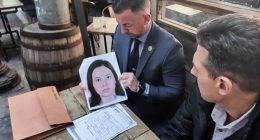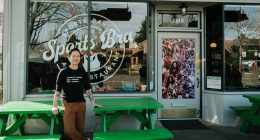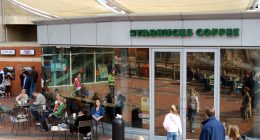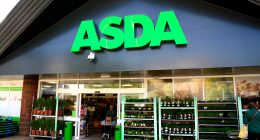
U.S. Customs and Border Protection has barred imports from three companies, including a supplier to Western apparel companies, that the agency says could be using North Korean forced labor.
As part of a broad crackdown on goods made with forced labor, Customs on Tuesday said it had used a 2017 law that imposed sanctions on North Korea to detain imports from three companies: Jingde Trading Ltd., Rixin Foods Ltd. and Zhejiang Sunrise Garment Group Co. Customs said it found indications that all three companies use North Korean workers, which under U.S. law are assumed to be forced laborers unless proven otherwise.
China and Russia are home to the majority of North Korean people working abroad, according to the U.S.
The companies couldn’t be reached for comment. Zhejiang Sunrise is a supplier to Western apparel companies, supply-chain experts said. A United Nations report published in March flagged a company called Rixin Foodstuffs Ltd. for allegedly bringing North Korean laborers to work in a factory in China. A Customs spokeswoman didn’t immediately respond to a query on whether Rixin Foods and Rixin Foodstuffs are the same company.
The U.S. is leading a growing movement by Western governments to preventing goods made with forced labor from reaching store shelves.
“CBP is committed to keeping America’s supply chains free of goods produced with forced labor and to eliminating this horrific practice,” said AnnMarie Highsmith, an assistant commissioner at the agency. “Legally and morally, we cannot allow these goods into our commerce.”
Customs’ enforcement push in part stems from a relatively new law that presumes goods from China’s Xinjiang region—home to the country’s Uyghur ethnic group and other minorities—are made with forced labor. But the agency has also said it would use its increased resources to target forced-labor-tainted goods regardless of their origin.
Customs can block forced-labor-linked imports using a variety of legal tools, but sanctions law is powerful, said Kit Conklin, a vice president at risk data and software company Kharon.
“There’s really significant legal ramifications if you run afoul of sanctions,” he said.
U.S. lawmakers in both parties are putting pressure on Customs to tackle forced labor, Mr. Conklin said. “CBP is empowered to use new authorities and existing authorities in new and creative ways,” he said.
Mr. Conklin, whose company helps businesses analyze supply chains, said that Zhejiang Sunrise is an important supplier to U.S. apparel companies. Ari Tuchman, chief executive of risk-screening company Quantifind Inc., confirmed that.
Customs in its public notice didn’t provide details about what the three companies allegedly did, but said it had begun detaining merchandise they made at all U.S. ports of entry as of Dec. 5.
The agency and other U.S. federal bodies have previously warned businesses of the risks of inadvertently sourcing goods from North Korea or made by North Korean workers, including those outside the country.
North Korean workers labor in dozens of countries, with Pyongyang taking between 70% and 90% of their earnings in many instances, the U.S. said in a 2018 publication.
Write to Richard Vanderford at [email protected]
Copyright ©2022 Dow Jones & Company, Inc. All Rights Reserved. 87990cbe856818d5eddac44c7b1cdeb8
This post first appeared on wsj.com









